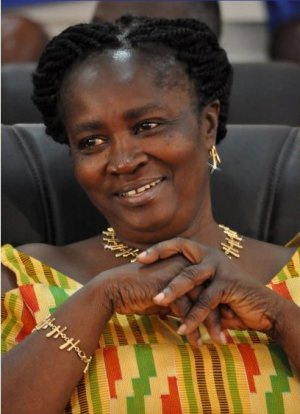Hundreds of delegates have converged in the Gabonese capital, Libreville, to attend the 13th General Conference of the Association of African Universities (AAU) to deliberate on policy issues, achievements, challenges and future plans.
The General Conference comprising representatives of members, associate members and observers admitted by the Governing Board, meets once every four years.
In addition, this year's meeting is being attended by Education Ministers, Vice Chancellors, Rectors, lecturers of various universities on the continent, as well as representatives of the donor communities, among other delegates.
The theme for the conference is: "Transforming African Higher Education for Graduate Employability and Socio-Economic Development".
Ghana's delegation is led by Professor Naana Jane Opoku Agyemang, Minister of Education. Other delegates include Professor Ernest Aryeetey, Vice Chancellor of the University of Ghana, Professor Joshua Alabi, Vice Chancellor of the University of Professional Studies, Mrs. Alice Sena Lamptey, Higher Education Technical Advisor of the African Union Commission, as well as a host of lecturers and rectors of the various polytechnics.
In a keynote address read on his behalf at the opening ceremony by Dr Seraphin Madouga, Minister of National/Higher/Tertiary Education, Scientific Research, President Ali Bongo Ondimba of Gabon urged African Universities and other institutions of higher learning to train graduates that would fit into the job market, to control the ever increasing rates of graduate unemployment on the continent.
President Ondimba recounted the growing numbers of unemployed graduates on the continent, and the resultant challenges of the situation, and called for pragmatic efforts to control it.
In his welcoming address, Professor Marc-Louis Ropivia, Rector of the University of Omar Bongo in Gabon, charged public authorities, the private sector, essential economic stakeholders and entrepreneurs to collaborate with the authorities in African Higher Education to "Turn out from their institutions, "a factory of tailor-made marketable people".
As a step in that direction, Professor Ropivia said Gabon had launched a number of projects under the public/private partnership aimed at the “professionalisation of Higher Education to promote an employability scheme coherent with the Strategic Plan for an Emerging Gabon” whose three pillars were Green Gabon, Industrial Gabon and Service Gabon that would constitute the foundation of the country's socio-economic development.
The AAU Secretary General, Professor Etienne Ehouan Ehile, said to ensure that products of higher education became self reliant, "the slogan for students should be no more what the University will give me but how can I contribute to the University, my community, my society and my country as a whole".
This, he said, also called for radical innovations in those educational institutions to help catch up with the ever changing trends in the job market not only in Africa but also in the international community.
In a Goodwill message delivered on behalf of the Executive Secretary of the Association for the Development of Education in Africa (ADEA), Mrs Alice Sena Lamptey, recalled the long-term and valuable partnership between the AAU and ADEA and stressed the need for close collaboration in the implementation of the recommendations of the 13th General Conference, as well as the recommendations of ADEA’s Triennial meeting, held in February 2012 in Ouagadougou, Burkina Faso.
The collaboration, she said, should specifically foster and promote the development of scientific and technological interactions aimed at harnessing the full benefits of Africa’s natural resources and youthful population for rapid economic development, global competitiveness and sustainable development.
The Association of African Universities is an international non-governmental organisation set up by universities in Africa to promote cooperation among themselves and with the international academic community.
Headquartered in Accra, Ghana, since 1970, the AAU was formally inaugurated on November 12, 1967 at a conference in Rabat, Morocco, attended by representatives of 34 of the then 47 existing universities in Africa.
The vision is to maintain the AAU as the representative voice of the African higher education community, both within and outside Africa, with a mission to raise the quality of higher education in Africa and strengthen its contribution to African development by fostering collaboration among its member institutions.
The General Conference is the supreme authority of the Association and is responsible for determining the general policies of the Association.
Regional News of Thursday, 30 May 2013
Source: GNA

















